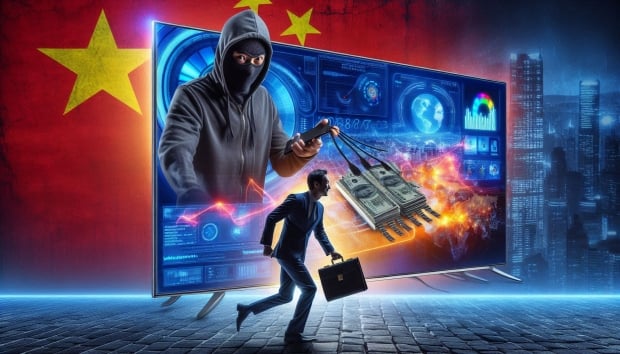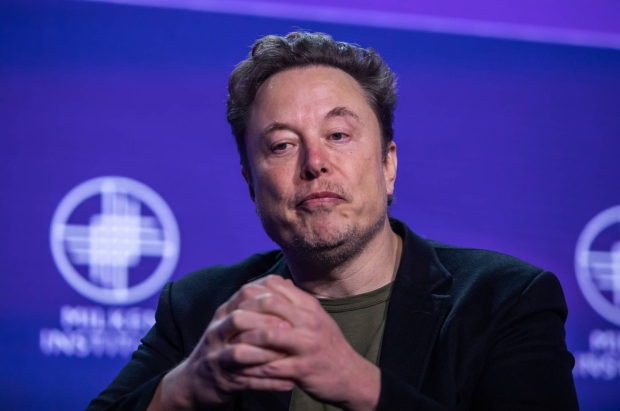Business, Financial & Legal News - Page 1
SK hynix board approves Yongin Semiconductor Cluster: the 'world's largest mega fab complex'
SK hynix announced that its board has approved its Yongin Semiconductor Cluster investment plan, which will be home to the "world's largest mega fab complex". Check it out:
The South Korean memory giant has approved 9.4 trillion won in building the first fab and business facilities at its new Yongin Semiconductor Cluster, with SK hynix designs to start construction of its first fab to be built in the Yongin cluster in March 2025, and have it complete by May 2027.
SK hynix says it will make every effort to build the fab to lay the foundation for the company's future growth and respond to the rapidly increasing demand for AI memory semiconductors. The new Yongin Semiconductor Cluster will be built on a huge 4.15 million square meter site in Wonsam-myeon, Yongin, Gyeonggi Province, and is currently under site preparation and infrastructure construction.
SpaceX and Tesla founder Elon Musk 'vows to destroy the woke mind virus' says it killed his son
Elon Musk says the "woke mind virus" killed his son, Xavier Alexander Musk, after transitioning genders in June 2021, which was one of the driving reasons why the SpaceX and Tesla founder purchased Twitter and renamed it, X, recently.
This isn't the first time that Musk has talked about the "woke mind virus" but had plenty of say during an interview with Jordan Petersen and DW.
Ex-Samsung Display researcher gets 6 years in jail in South Korea, leaked OLED secrets to China
A former Samsung Display engineer is now facing 6 years in prison for leaking 340 billion won (around $24.5 million USD or so) worth of OLED technology to China.
The South Korean lower court found the former senior engineer from Samsung Display guilty of violating the Unfair Competition Prevention and Trade Secret Protection Act. The researcher had been on trial but was allowed out on bail, pending the expiration of their arrest in March 2024, and was recently taken into custody and sentenced on Thursday.
Back in October 2023, the former Samsung Display researcher was indicted on charges of illegally obtaining optical systems for excimer laser annealing (ELA) technology used in the production of Samsung's OLED displays a well as technology used for OCR injects -- which are used to attach outer cover glass on OLED panels -- to sell to Chinese companies between 2018 and 2020.
President Trump: if Taiwan doesn't pay for US protection, US won't stop China invading Taiwan
President Trump has said that in his new administration, should he win the election later this year, the United States might not defend Taiwan if China invades, that is, unless Taiwan starts paying for US protection.
This has caused chip stocks in Taiwan to tumble, reports Reuters, with semiconductor investors factoring in the continued risk of lost sales to China over US export restrictions. However, President Trump's new comments about Taiwan are a basket of issues for investors and the world.
Throughout my time in the tech industry (close to 23 years now), Taiwan has become a major hub for virtually every technology product and brand. Apple, AMD, Intel, Microsoft, NVIDIA, Amazon, Google, Samsung, Sony, and countless others have their chips fabbed at TSMC in Taiwan.
Microsoft responds to the FTC deeming Game Pass a 'degraded product'
It was only a few days ago that Microsoft's new Game Pass pricing was brought up by the Federal Trade Commission (FTC) in a recent filing
The FTC filed a document with the US Court of Appeals for the Ninth Circuit that claims Microsoft's decision to increase the price of Game Pass was a strategy that demonstrated it "exercising market power" after its acquisition of Activision-Blizzard. The FTC document went as far as to claim Microsoft's Game Pass price increase is evidence of "product degradation," which is tied to the company's "reduced investments in output and product quality via employee layoffs."
Both of these points represent Microsoft exerting its power on the market, according to the FTC document. Now, Microsoft has responded to the FTC filing, saying, "It is wrong to call this a 'degraded' version of the discontinued Game Pass for Console offering." The Redmond company cited the lack of multiplayer functionality with the discontinued Game Pass tier, and that gamers wanting multiplayer access would need to spend an additional $9.99, making the total cost $20.98.
Continue reading: Microsoft responds to the FTC deeming Game Pass a 'degraded product' (full post)
NVIDIA could be worth $50 TRILLION in the next 10 years, says early Amazon and Tesla investor
According to Tesla and Amazon's early investor James Anderson, NVIDIA could be worth an astonishing $50 trillion within the next 10 years. The unstoppable AI wave, which hasn't slowed down over the last 18 months, will help NVIDIA.
Anderson's estimates don't seem out of control, with NVIDIA already scaling the lofty heights of a $3.3 trillion+ market cap recently, driven by the insatibale demand for AI chips. NVIDIA controls an estimated 90%+ of the AI GPU market share, leaving the rest with scraps.
Anderson said: "The potential scale of NVIDIA in the most optimistic outcome is both way higher than I've ever seen before and could lead to a market cap of double-digit trillions. This isn't a prediction but a possibility if artificial intelligence works for customers and NVIDIA's lead is intact".
Elon Musk unveils multiple attempts have been made on his life
Following the assassination attempt on US President Donald Trump at a campaign rally in Pennsylvania, SpaceX and Tesla CEO Elon Musk unveiled two attempts have been made on his life in the past eight months.
Musk took to his personal X account, formerly Twitter, to reply to a user requesting Musk increase his private security for his own protection, citing the event with President Trump as an example of what can happen to people in powerful public positions who have people that strongly disagree with them. Musk said there are "dangerous times ahead" and then revealed two people on separate occasions have "already tried to kill me in the past 8 months".
The Tesla CEO said these individuals were "arrested with guns about 20 mins drive from Tesla HQ in Texas". In another response, Musk joked that it was maybe time for him to "build that flying metal suit of armor," which refers to the iconic Iron Man suit of armor worn by Marvel's Tony Stark. Notably, this isn't the first time Musk has mentioned people trying to kill him, as he told Canadian professor Gad Saad during a live audio chat on X Spaces that in the past, "mentally ill" people have made attempts on his life.
Continue reading: Elon Musk unveils multiple attempts have been made on his life (full post)
Elon Musk 'fully endorses' President Trump after failed assassination attempt
An assassination attempt was just made on US President Donald Trump, at a campaign rally in Pennsylvania, with the former president grabbing his face after he had been shot (grazed his ear) by an unknown shooter.
Just minutes later, SpaceX and Tesla founder Elon Musk said: "I fully endorse President Trump and hope for his rapid recovery". The attempted assassination of the former president saw multiple shots heard, with screams from the crowd, and the Secret Service was quick to respond to protect the president.
AMD announces $665 million takeover of Europe's largest AI lab
AMD has announced a major move into the AI industry, and it appears to be undoubtedly a strategic acquisition to gain a foothold in the growing sector currently dominated by NVIDIA.
Reports indicate AMD is purchasing for $655 million Finnish start-up Silo AI, an AI software company that focuses on integrating AI solutions into already operating businesses. The transaction will grant AMD access to several prominent brands, such as Rolls-Royce, Unilever, Alliance, and Phillips. The idea behind the acquisition is AMD will be able to power and scale Silo AI's software, which includes multi-lingual large language models (LLMs).
AMD will be able to achieve this through its AI-capable chips, which, at the moment, are the types of chips that couldn't be in more demand. NVIDIA becoming the world's most valuable company is a testament to the demand of AI chips, and this acquisition by AMD is certainly a move by the Red Team to eventually steal away some of NVIDIA's market dominance.
Continue reading: AMD announces $665 million takeover of Europe's largest AI lab (full post)
Mark Zuckerberg threatened with imprisonment over swaying presidential election
The founder of Facebook and the CEO of Meta, Mark Zuckerberg, has been threatened with imprisonment over his alleged involvement in swaying a presidential election.
The allegations come from the former President of the United States, Donald Trump, who took to the social media platform Truth Social to remind Mark Zuckerberg of their long-time-running combative history by saying, "They have no shame! All I can say is that if I'm elected President, we will pursue Election Fraudsters at levels never seen before, and they will be sent to prison for long periods of time." Adding, "We already know who you are. DON'T DO IT! ZUCKERBUCKS, be careful!"
These comments from Trump come after a 2023 post on Truth Social that claimed the Meta CEO was swaying the presidential election, which cited a Fox News report that stated Zuckerberg's $2 million donation to a Georgia election board was being investigated. In September 2022, the Federal Election Commission unanimously voted to dismiss nonpartisan election administration grants funded by Mark Zuckerberg, clearing his name of any election swaying.










